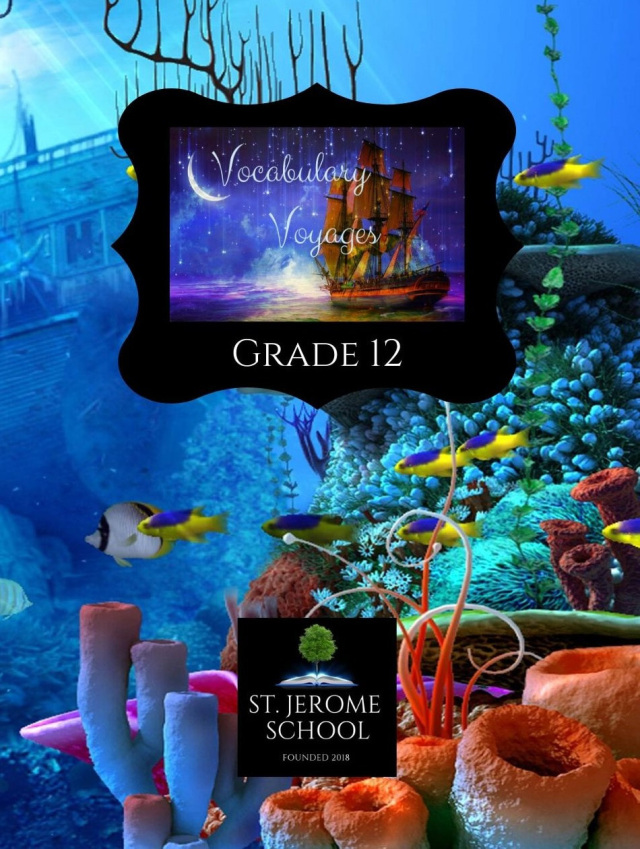The Vocabulary Voyages series for grades nine through twelve provides instruction for both spelling and vocabulary. Both the colorful layout and lesson format are very similar to those in the St. Jerome Catholic Spellers series from the same publisher.
Weekly lessons begin with a list of words with their definitions. Students are then provided with lines on which they will write each word five times. Next are ten fill-in-the-blanks sentences followed by columns with five synonyms and five antonyms to match up with correct answers.
Students might be given an optional spelling pre-test on Thursdays, but the main test on Fridays is not optional.
Students can complete all of their work except spelling tests within their books.
The words taught are those found on the ACT, SAT, and other college entrance exams, along with some words that are particular to the Catholic faith. There are fewer “Catholic” words in these books than there are in the St. Jerome Catholic Spellers series. In the ninth grade book, I found distinctive words like curia, procuratrix, and Tridentine. Some of these words might be used in other contexts, but here they are taught as they are used within Catholicism While there are few of these distinctly Catholic words, the sentence-completion exercises assume a deeper than average familiarity with Catholic practices and terminology with questions such as “Do you go to the ______Latin Mass?” and “I wonder how many times the Church has used the excommunication of _________” (Vocabulary Voyages: Grade 9, pp. 177 and 183). The answers to these last two questions are Tridentine and vitandus─words that might be unfamiliar to even most Catholics. Since definitions are provided at the beginning of the lessons, students can figure these out even if the words are new to them.
A single answer key has the answers for all four of these books.
Students can work independently aside from the spelling tests. This might be a critical feature for many homeschooling families. However, in place of copying the words five times, I would prefer to see the vocabulary words used in more expansive exercises to help students grasp their meanings. Parents or teachers who feel the same can easily substitute an assignment such as having students write their own sentences using each vocabulary word. But then parents or teachers would need to evaluate those sentences without the assistance of an answer key.
In summary, the Vocabulary Voyages series offers challenging academic content while remaining very easy to use, even if parents or teachers choose to add additional activities.









